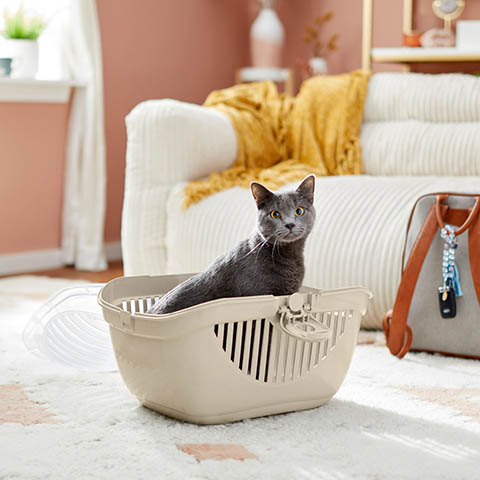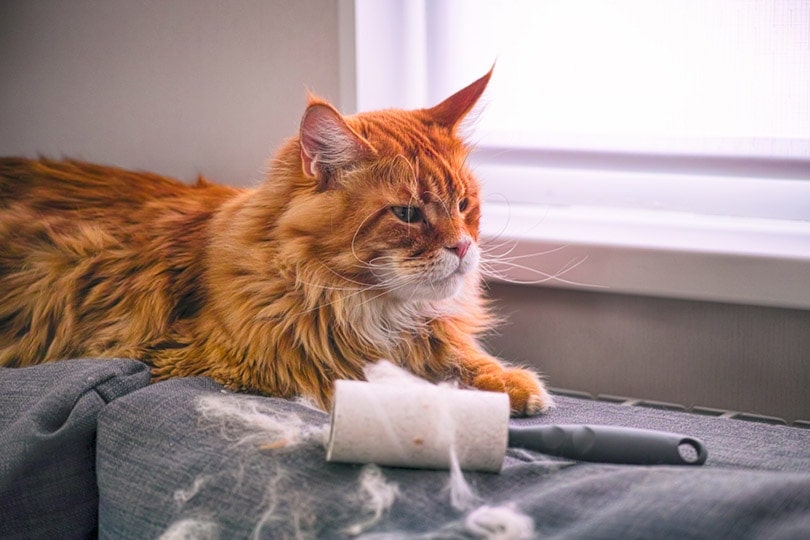Why Is My Cat Licking the Floor? 7 Vet-Approved Reasons

Updated on
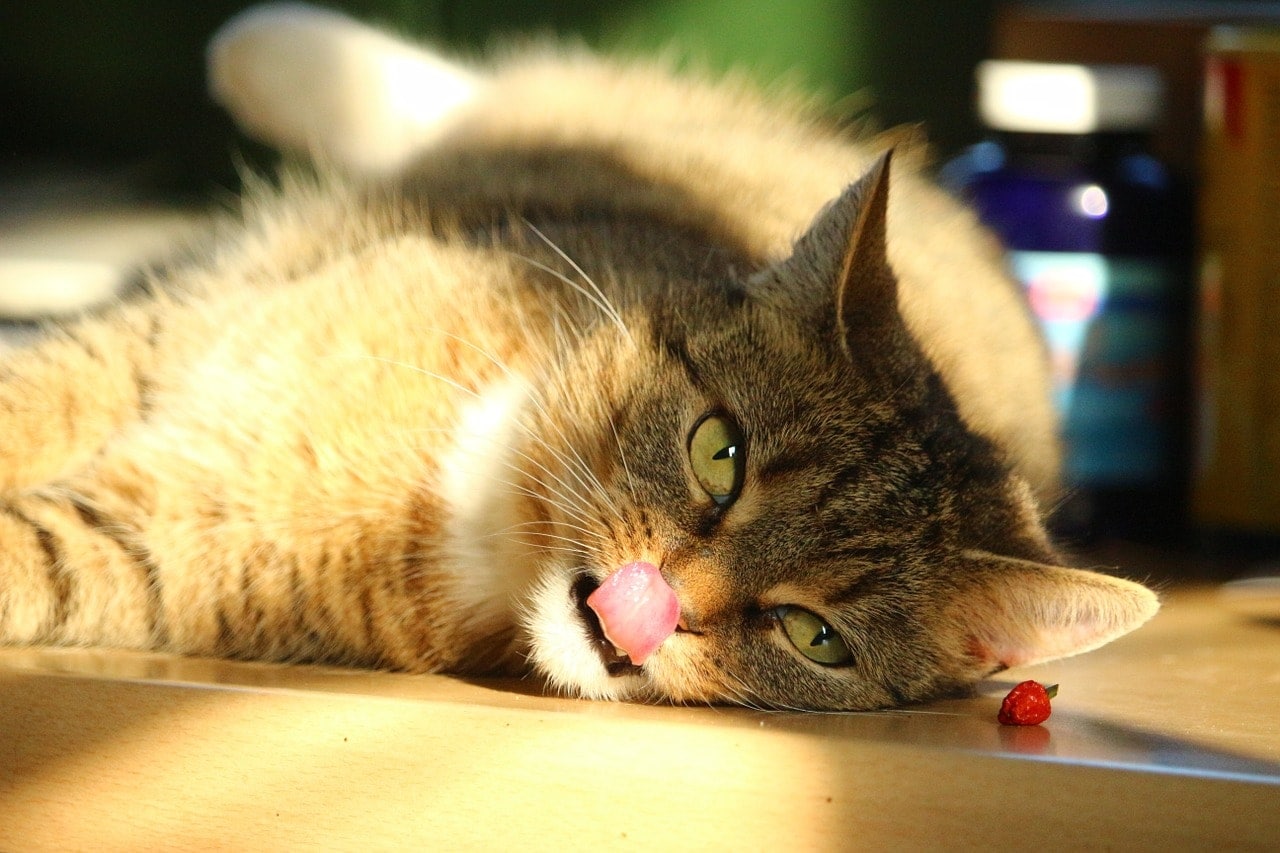
Click to Skip Ahead
As cat owners, we know that cats do weird things sometimes. Most of their behaviors can be brushed off as feline weirdness, but some can make us wonder about their motivation. Keeping our cats safe and healthy means paying attention to anything unusual and knowing when to worry.
Cats lick themselves while grooming. They also may lick other cats or pets as a way of social bonding. When cats start licking objects, it can be perplexing, especially if they’re licking the floor.
This behavior doesn’t automatically mean something is wrong, but there are multiple reasons that cats do it. In this article, we’ll discuss the reasons and let you know which ones are harmless and which ones may indicate a potential problem. Then, we’ll go over how to stop the behavior.
The 5 Harmless Reasons Your Cat Licks the Floor
Cats lick the floor for many reasons, many of which are harmless. Whether your cat is bored, searching for food, or just enjoying what they’re doing, here are the harmless reasons that your cat is licking the floor.
1. They Just Like It
Sometimes, the simplest answer is what’s happening. The texture of the floor may be attractive to your cat. Flooring is made of composite materials that cats can taste as they lick. Plastic flooring may contain products such as beef tallow and gelatin. Cats can detect these smells and lick the floor as a result.
Wood flooring is smooth and cool, and cats lick the flooring because they enjoy the texture and temperature. Cats like to lick smooth surfaces, and the floor is a large, smooth area that they have constant access to.
Concrete or cement floors have a rough texture that is new and interesting to cats. They may lick these floors to check out the feel of them and wind up enjoying the sensation.

2. They Found a Different Water Source
Cats like to seek out different water sources. That’s why you’ll sometimes see them drink from a faucet or lick water out of a sink. When condensation builds up on your floors, they’ll find it. If your cat is licking a floor with condensed water, they are likely just enjoying their newfound hydration source.
Even if your cat has a fresh bowl of water, they may prefer the water that’s pooled on the bathroom floor. However, this could also indicate that your cat has abnormal thirst or polydipsia, which always warrants a vet visit.
If you notice this behavior from your cat, make sure they have access to clean, fresh water bowls, and start watching your cat closely and measuring the amount of water they drink so that you can give your vet as much information as possible. Your vet may want to check your cat and run blood or urine tests, monitor them, or recommend a water bowl change.
3. They’re Anxious
Cats lick themselves while grooming, but licking can also be a calming action for them. Cats find grooming a reassuring action, and licking can become a habit whenever the cat feels stressed, anxious, scared, or bored. It’s a way for them to self-soothe.
The licking behavior can then transfer to other things. If cats stop licking themselves, they may move to an object nearest them, like a table leg or the carpet. They may even start to lick the bare floor. If your cat is acting anxious or stressed, try to pinpoint the source. You can help your cat stay calm and reduce their nervous licking.
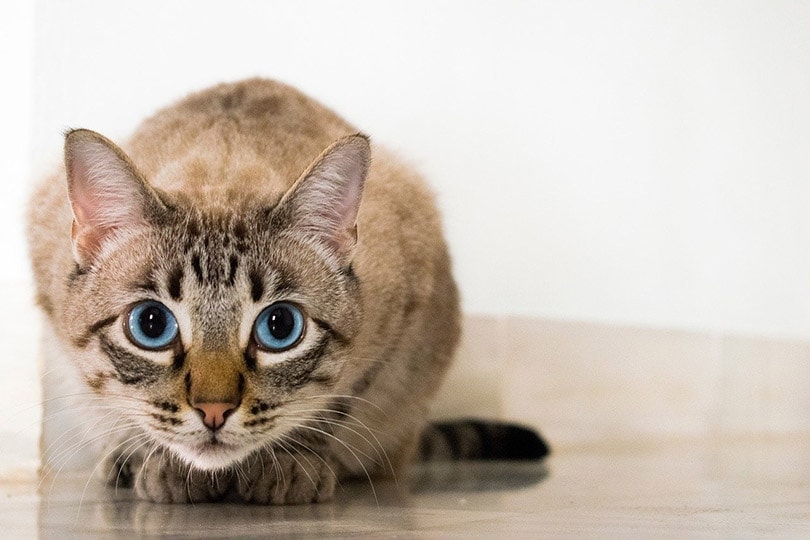
4. They Found a Spill
If we spill or drop food on the floor, we may not be able to get rid of it all just by wiping it up. Cats can seek out the spots from the scents that they leave behind. You may notice that your cat is licking the floor in the same place where you spilled chicken soup or dropped a few crumbs of toast.
When cats lick the floor around their food bowls, they’re searching for remnants of their previous meal. It could mean they are just trying to get all they can, or they’re hungry and trying to let you know.
5. They Have Behavioral Issues
Cats that lick the floor may have an obsessive disorder that makes them do it. While it isn’t necessarily dangerous for your cat, you may want to consult your vet or cat behaviorist to talk about treatment options. Changing your cat’s routine and giving them prescribed medication can help stop this behavior.
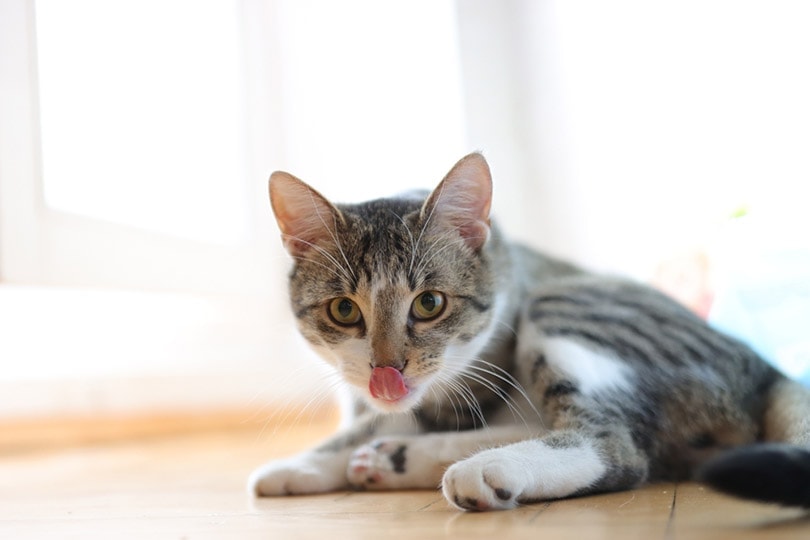
The 2 Serious Reasons Your Cat Licks the Floor
Sometimes, it’s not harmless fun when your cat is licking the floor. Here are a few reasons to be aware of to keep your cat safe and healthy. If you notice these or any other abnormal behaviors in your cat, contact your veterinarian.
6. They Have Pica
Pica is a condition where a person or animal has an urge to eat items that are not edible. In cats, pica can start with licking inedible objects and move on to consuming items that can cause digestive issues, such as intestinal blockages. They can be rubber bands, ribbons, plastic bags, threads, and fabric material. Cats with pica have been known to chew and consume pieces of terry cloth bath towels, resulting in medical emergencies.
If your cat is licking the floor and moves on to licking and chewing other items, they may have the condition. Sometimes, the cause is a lack of nutrients in your cat’s diet. However, there are several other factors that veterinarians believe can cause pica. If you see your cat trying to chew or eat inedible items, contact your vet for an evaluation and discuss measures to stop the behavior.
7. They Smell Chemicals
Your cat might be drawn to the cleaner you use on your floor, which can be dangerous. If your cat is licking chemical cleaners off the floor, this is toxic and can make them sick. Cats should be kept out of the room while you’re cleaning and only be allowed back in when the floor is dry.
Cats don’t have to lick the chemicals off the floor to be affected by them. Even walking on a wet floor and then licking their paws can poison them. Keep all cleaners out of your cat’s reach, and don’t allow them near a freshly cleaned surface until it’s dry.
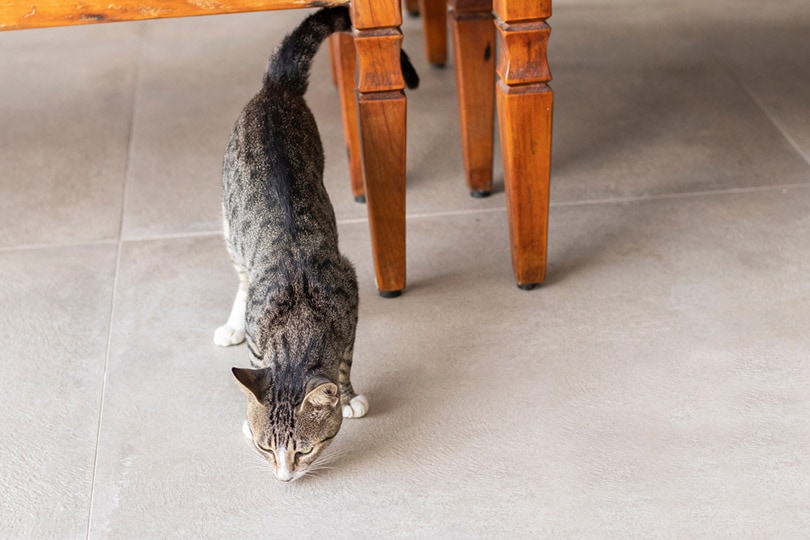
The 3 Things to Consider When Your Cat Licks the Floor
You may not be concerned if your cat is licking the floor for harmless reasons. However, here are a few things to consider.
1. When Did It Start?
Has your cat been licking the floor since the day you got them? If they’ve always licked the floor, they could do it out of habit or simply because they like it.
It may mean there’s a reason to be concerned if it is a new behavior. You should try to figure out why it’s happening. Did you recently move or add another pet to the house? Your cat could be anxious or upset.
2. When Does It Occur?
The timing of this behavior can offer a clue to the cause. If your cat constantly licks the floor around mealtime, they may be letting you know that they’re hungry. If your cat licks the floor during a thunderstorm, they may fear the noise.
3. Is the Floor Dirty?
If your cat licks the floor, you can vacuum more regularly to keep dust, debris, and objects out of their reach. Licking up dirt from shoes, scattered litter, and other objects can cause illness.
If you are concerned about this behavior, talking to your vet is the best way to determine why it’s happening and what can be done about it.
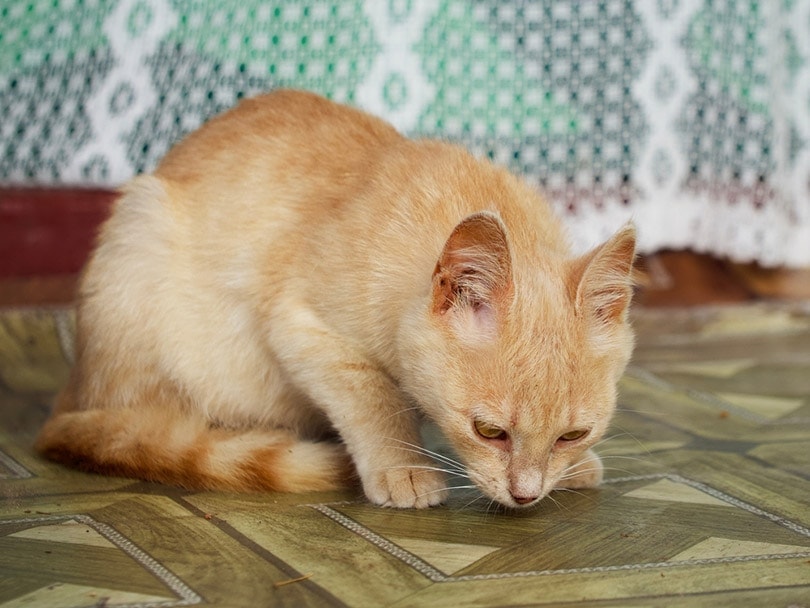
How Do I Stop My Cat From Licking the Floor?
If you’d like to discourage this behavior after you’ve ruled out health issues, here are a few things you can try.
1. Increase Play
If cats are bored and restless, they will find things to do that may not be desirable, like licking the floor. Increasing your cat’s mental and physical stimulation can give them something else to focus on that is way more exciting than floor licking. It also tires them out.
2. Redirect Them
When the cat starts to lick the floor, redirect their attention using treats, food, or toys. Encourage your cat to seek out other areas by placing treats there, and reward them with catnip and play when they ignore the floor.
3. Change Your Cleaner
If you use a product to clean your floor that attracts your cat, swap it out for one that isn’t as tasty. Citrus-scented products may not be as attractive to cats as those with bleach or ammonia.
4. Add More Water Bowls
If cats are licking water off the floor, consider providing them with more water sources. Cats like to seek out their water. Some prefer fountains with moving water. They may encourage your cat to drink more water than a standing bowl does.

Final Thoughts
Cats lick the floor for several reasons; Some are entirely harmless, while others call for a visit to the vet. If your cat is licking the floor harmlessly, there’s no reason to be concerned, but you can stop it by giving your cat other things to do.
If a medical reason causes the licking, your vet can develop a plan to stop it and help your cat feel better. Paying attention to changes in your cat’s behavior to address potential issues will keep them happy and healthy.
Featured Image Credit: rihaij, Pixabay



